Explore the future of rewilding at Fritton Lake holiday club in Norfolk – Scotland on Sunday Travel
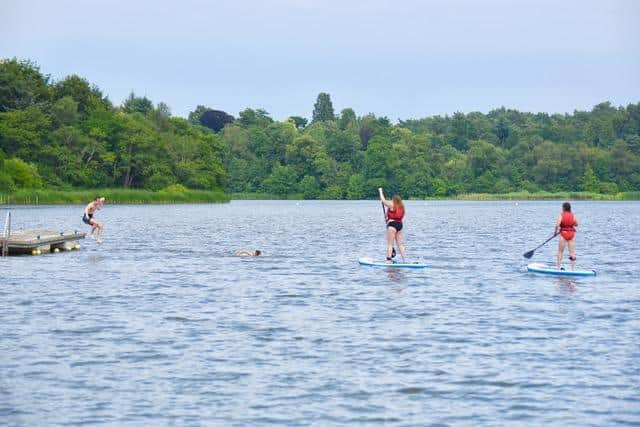

Fritton Lake is a sustainable private holiday club situated in the heart of a pioneering rewilding project on the Somerleyton Estate, which covers 1,000 acres on the Norfolk/Suffolk borderand is at the forefront of WildEast, a non-profit organisation on a mission to return 250,000 hectares (20%) of East Anglia to nature.
In the driving seat is owner Lord Hugh Crossley, hotel owner, restauranteur, landowner and conservationist who lives with his family at Somerleyton Hall, his 5,000-acre ancestral home.
Advertisement
Hide AdAdvertisement
Hide AdThe aim is to transform the region into one of the UK’s biggest and best nature reserves, and Fritton Lake’s guests can be part of this greener vision of the future. WildEast was co-founded in 2020 by Hugh Crossley with two other local landowners and farmers Oliver Birkbeck and Argus Hardy. All going to plan, Fritton Lake hopes to pave the way for the reintroduction of key species such as the beaver, pelican, bison and lynx. Since 2017, the estate’s farmland has gradually been restored to carefully managed sustainable wildland that is now home to free-roaming animals and birds, and there’s plenty of plant life too.
Hugh Crossley grew up on the estate and says, “In my youth, the obvious things missing were woodland mammals. There were no deer and old farming methods were used, and everything was over-grazed. It was silent around here, but now mammals are back and things are livelier, and we have plenty of water, fish and vast woodlands too,” he said.
Today, Fritton Lake’s guests live amongst the sights and sounds of nature, with rich birdlife, water buffalos, highland cattle, large black pigs, red, fallow and roe deer, herons, otters, red kites, water voles, egrets, buzzards, kingfishers, black welsh mountain sheep, and well-fed and rounded Exmoor ponies.
Once at the heart of a Viking settlement called Loving Land, the lake is 2.5 miles long and in a serpentine shape, dug out in medieval times, probably by children and is two to five metres deep. Chilean rhubarb, with its two-to-tree-metre-wide leaves, stands tall along the shore, next to oxygenating reeds... the more reeds, the healthier the lake.
The lake bubbles with activity from the likes of pike, eel, perch, carp, roach and bream, with woodlands and exotic plants flourishing along its shores.
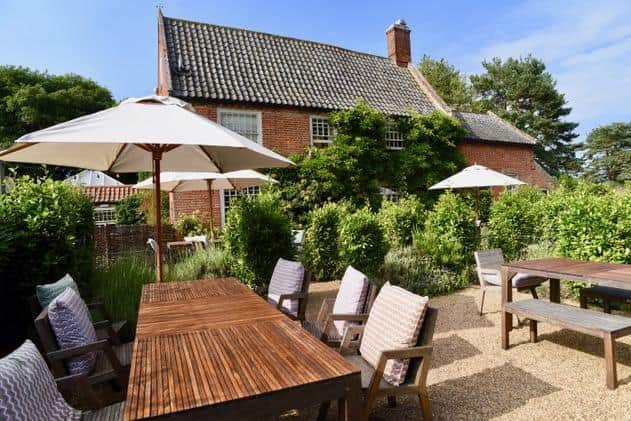

Wildflowers, including oriental poppies, add a splash of vibrancy to the landscape and attract a healthy stock of spectacularly colourful butterflies, dragonflies and bees that create a delicate chorus of insect sounds across this beautiful setting.
I stayed at the Clubhouse, a cosy boutique hotel full of character that was once a 16th-century manor house. Today the Clubhouse hosts guests within its eight charming bedrooms which all have a contemporary feel, mixed with original exposed wooden beams and quaint windows overlooking the beautiful grounds.
Conveniently located on the ground floor is the Clubhouse restaurant and pub – so it’s not far to walk for meals. Self-catering is available if you rent one of the gorgeous and stylish cabins tucked away amidst ancient woodland and with views of the lake, or one of the holiday cottages nestled in the estate’s flourishing meadows. Both options are dog-friendly.
Advertisement
Hide AdAdvertisement
Hide AdHorse owners can bring their equine friends on holiday and take advantage of riding around the spectacular grounds.
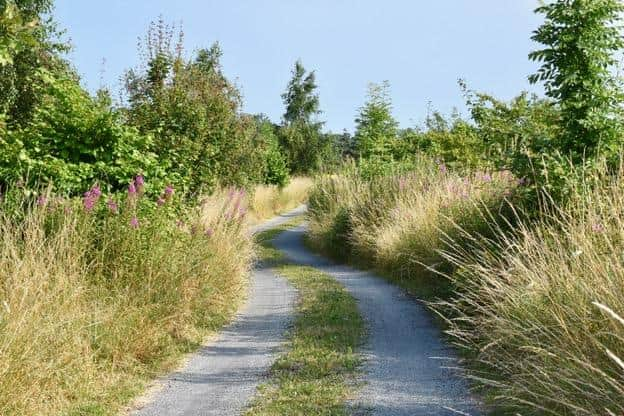

Fritton Lake contributes directly to the on-site conservation work and guests are encouraged to join the rewilding team –headed by Matthew, the Fritton Lake horticulturist – on safari on foot, by boat or jeep, to learn from and improve the natural ecosystem. Plans to reintroduce peregrine falcons, storks, beavers and pelicans to the wilds of Fritton Lake are in progress.
Wandering around the estate, I crossed paths with free-roaming Exmoor ponies, water buffalos, Welsh Black cows and native Suffolk large black truffle pigs with their many, many piglets. Don’t be surprised by them because they’re all part of the rewilding project.
Activities at Fritton Lake include swimming in the two-mile-long lake, walks, canoeing, paddle boarding and more. For Hugh Crossley, growing up by the lake, swimming is part of life. “Effectively, wild swimming is going for a swim in a natural lake or body of water. We’ve had to rename it for people, to go back to what was a typical activity in the past, and I’m proud of its popularity,” he said.
Before taking to the water, bathers must pass a water proficiency test to show they are capable of swimming in the cold and deep lake water. The test involves jumping off the dock and into the lake, then swimming to a pontoon to demonstrate their ability, and handling falling off a boat or paddle board. If satisfied, the staff will let you take to the water. If the
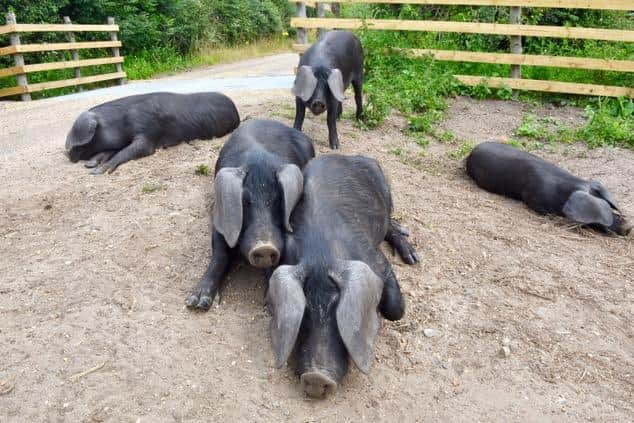

lake isn’t for you, there’s a heated swimming pool that opens from 9am to 6pm.
I watched as kids took a long run through the Victorian walled garden, over the lush grass and down the wobbly jetty, while all the time stirring up enthusiasm with their joyous, echoing ‘whoop, whoop’ calls, anticipating the cold water.
With an awkward leap, they propelled themselves into the air then plunged into Fritton Lake.
Advertisement
Hide AdAdvertisement
Hide AdWalking along the lake’s shoreline, I came across another, shorter wooded pontoon, leading to a floating KOTO sauna (a carbon neutral structure for on and off grid living). Inside the smouldering cabin, the heat was intense. There’s a large floor-to-ceiling window (you can see out, others can’t see in!) overlooking the lake, with views of boaters, paddle boarders,
rowers and occasionally a water buffalo... they can appear anytime, anywhere. You might also spot deer that come to drink, otters or huge dragonflies flitting about in abundance.
When I’d had enough, I jumped straight into the cooling lake. Bookings are required for a 20-minute slot, and you must be 18 or older to use the sauna.
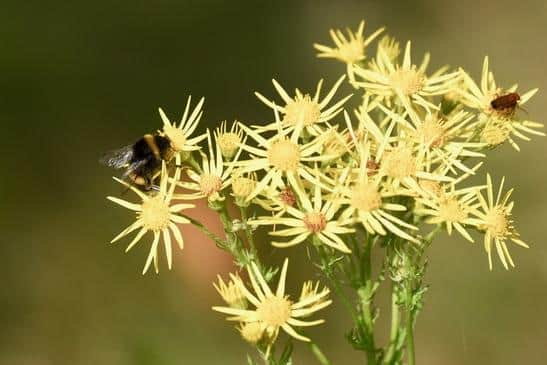

My dinner choice was made easy thanks to the straightforward, tantalising menu. Music filtered across the south facing terrace as guests tucked into bulging burgers, thin-based pizzas, fragrant curries or juicy steak, from a wider menu where most ingredients are grown or raised on the property. The food is tasty and portions are sensible – plus the homemade chocolate ganache dessert is very good.
Dining al fresco under ageing oak trees and silver birches offers charming views across fields, where wildflowers blossom and roaming ponies graze. As the evening temperature dropped, the warmth of the cosy dining room and lounge areas beckoned.
Nothing is over the top here, nor is it underdone... it’s perfectly balanced and complemented by the natural, well-balanced grounds.
Fritton Lake at Somerleyton Estate is a unique place where you can immerse yourself in the tranquillity of nature, while doing something to restore the biodiversity of our natural environment. You don’t have to fly miles to have a good and educational time.
Fritton Lake: Beccles Road, Fritton, Great Yarmouth, Norfolk, NR31 9HA.
www.wildeast.co.uk
Rooms from £160 per night
